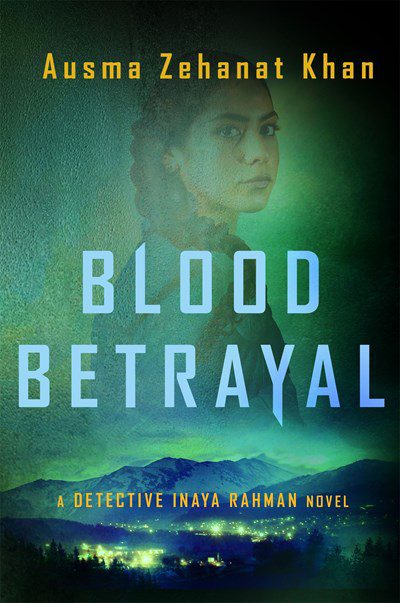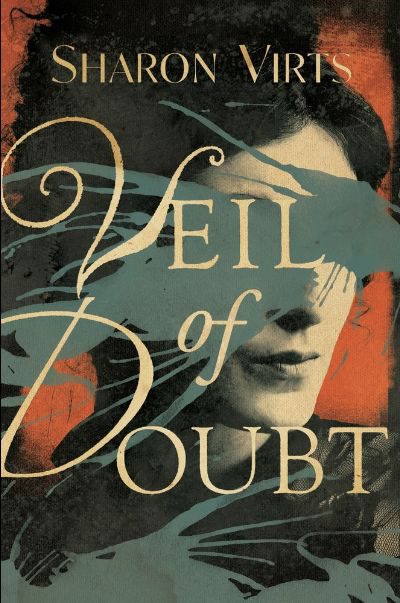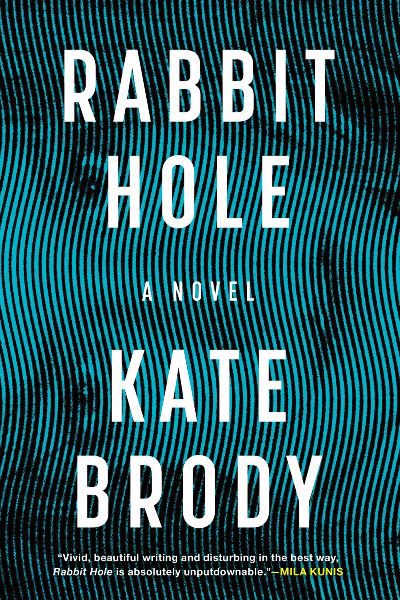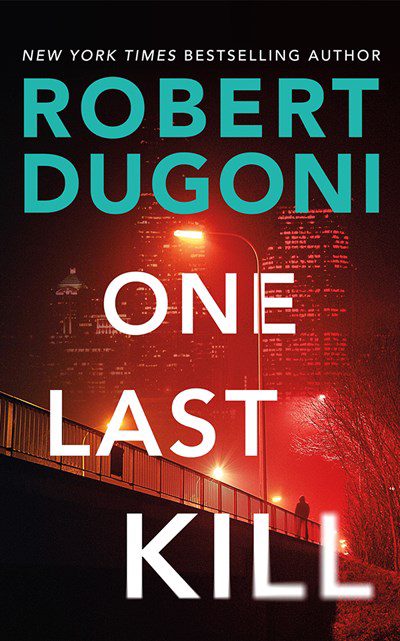Ben Rosencrantz leaves his job as an English professor and returns home to Sugar House, a suburb of Salt Lake City, newly divorced from his husband and ready to help his ailing dad run the family’s game shop. The store is struggling financially, so Ben’s initially torn when Clive, a customer known for unscrupulous methods, offers a chance to buy a rare board game worth thousands of dollars. But when Ben tells the seller no thanks, Clive is livid. The next time Ben sees Clive is when his dead body lands on the store’s doorstep. Ben and Ezra, the cute florist from next door, decide to investigate on their own but quickly learn that the case is no game. Connor’s large and charming cast of characters is so engaging that the mystery, while fun to solve, is just icing on a multi-layer cake. Many cozy mysteries have recipes in the back of the book, but this one has rules for a fun game and questions for your next book club meeting. Whether you are a fan of LGBTQ fiction or not, this is a terrific debut.
Mystery & Detective
Khan’s latest features extremes: fast moments of violence and the long years of condemnation and recriminations that follow, and found families—good and evil—in contrast with those we’re born into. Blackwater Falls, CO, Community Response Officer Inaya Rahman is facing a ghost from her Chicago PD past: John Broda, an officer who badly beat her. Now he wants a favor. Broda’s son, another officer, is accused of shooting an innocent young man, and Broda knows that Inaya is both smart and caring enough to find out the truth. In return, he’ll give her a recording she’s long wanted of another officer implicating himself in a racist crime. It’s not Rahman’s case, and she clashes with her boss, Qas Seif. Inaya and Qas’s feelings for each other, and the family ties that are a highlight here, only complicate matters. Further difficulties are added by a parallel crime, this time one Inaya is officially working on: a white officer who’s near retirement shoots a young Black man, and the community is seething. Khan excels in creating multifaceted characters whose engrossing stories bring up social questions to which there are no easy answers. As in the best crime fiction, the solution here is both satisfying and unexpected.
Terrible accusations against women who lack a man to give them standing are mainstays of history and literature, and Virts’s spellbinding work brings to mind related tales by Anita Shreve, Margaret Atwood, and, of course, Nathaniel Hawthorne. Emily Lloyd is a widow and childless since her children have died; the last one, Maud, was the final straw for her Reconstruction-era Virginia neighbors. She’s now accused of killing little Maud, Annie, George, and Henry, as well as her husband and aunt. What transpires is a medical and legal drama, based on a true story, that pits affable lawyer Powell Harrison against a prosecutor and a town that hates his client. It doesn’t help that Lloyd’s uncle was an outspoken abolitionist, nor that she lives next door to two mysterious sisters, one of whom is known to take gentlemen callers. But Powell just might be able to free Emily using his wiles and openness to scientific methods of finding the truth, both of which contribute greatly to creating an excellent read.
Theodora, or Teddy, Angstrom’s father, died by suicide at the 10-year anniversary of her older sister, Angie’s, disappearance as a teenager. Her mother is now to be found lying on the floor with her ancient dog, “Two commas facing one another, small nothing between them.” It’s up to Teddy to make arrangements, exhausted though she is with her teaching job on top of this unwanted task. While doing so, she discovers that her father was on a relentless quest to find Angie, and his failure seems to have been the last straw. Learning that Angie’s disappearance is a hot topic on the message-board site Reddit, where Teddy also finds details about another young woman who disappeared and was found to have run away from her abusive family, sparks curiosity in Teddy. It soon turns to obsession as the amateur sleuth meets a strange, needy young woman who was helping Teddy’s father with his detective work and starts getting messages from a stranger who might know more about Angie’s fate, if she can only find him. As the twisting tale unwinds, unsavory details about fans of true crime, and of message boards where vicious and glib voyeurs can anonymously post intimate questions and tacky rumors about crime victims, will open readers’ eyes to survivors’ reality. A gritty, realistically ambivalent look at how insiders and outsiders experience crime, with a realistic main character to boot.
A newspaper retrospective of an unsolved killing spree brings back more than memories in Dugoni’s latest thriller. The Route 99 serial killer seemed to stop almost three decades ago, but why? The upcoming article reflecting on the murders has Tracy Crosswhite investigating the cold case with Johnny Nolasco, her superior, whom she does not get along with. He ran the original task force, and failing to deliver a suspect still haunts him. The two must overcome their differences to see if they can find justice and bring closure to the victims’ families. The clues lead to the horrific possibility that renewed exposure will cause the killer to strike again. Though this is the 10th Tracy Crosswhite, newcomers will savor the story, while Dugoni fans will love how he ties up several storylines from earlier novels. Few authors deliver consistently stellar crime fiction, and Dugoni is one of those writers. Michael Connelly fans should have this series on their reading pile.
This first in a series, set in Italy’s magical Positano—that’s the much-photographed town on the Amalfi coast that’s clinging to a mountainside—promises plenty and delivers even more. Bria Bartolucci is a young widow intent on fulfilling her late husband’s dream of opening a B&B in Positano. And with help from her eight-year-old son, Marco; her best friend, Rosalie; sister; parents; Giovanni the handsome handyman; Bravo the dog; a nun; and several more characters, it looks like Bella Bella will open on schedule. Until a bloody corpse—oh mio dio!—is found spread out on a bed in a guest bedroom. But Bria is going to need more than God’s help to solve this mystery and restore her reputation, especially with her misfortune the lead story on the Positano gossip circuit. How will Bella Bella survive? There’s so much to love in this series’ premier. For starters, there’s the huge and hilarious cast of characters, each so unique—from clothes to personality—that there’s no chance of confusion. Add to that a series of capers that place Bria and her BFF, Rosalie, in increasingly risky situations. And Falco’s peppering of the book with Italian—don’t worry, you’ll be able to figure it out—goes far to give it a feeling of authenticity. Finally, we go beyond the tourists and learn more about the unique and beguiling town that is Positano. For fans of Lorenzo Carcaterra.
What the world needs now is a great, queer detective, and Rosen is well on his way to creating him. The second in the series—the first was fun but also a bit idiosyncratic—this has the makings of a classic detective novel with a strong supporting cast. It’s San Francisco in 1952, and we’re back with struggling detective Andy Mills, whose home and office are above Ruby, a gay bar. Ex-navy and an ex-cop, Mills is still struggling to gain acceptance from the queer community. But along comes a case that may help him turn around his image. First one, then several people, it turns out, are being blackmailed—sex photos taken in a hotel, holes drilled through the wall—and Mills is on the case. But as with any good crime novel, the story isn’t what you first expect, and soon Andy is reunited with his Navy flame who disappeared seven years ago. Set against the queer bars of the city, the continual raids orchestrated by the police, and the foggy bay itself, this book is powerfully atmospheric. It ends leaving Andy free from the past and ready for the future. Exactly what most readers will be waiting for.
Sometimes it’s the setting that grabs you. Often it’s the plot. But here it is two fabulous characters who come together and through sharp dialogue create a story that both cozy and traditional-mystery readers will love. Former Senator Dorothy Gibson—pant-suit loving, wise-cracking, and wine-imbibing—has just weeks ago lost a run for the presidency to that man, and she’s retired to her northern White House on the Maine coast to lick her wounds and begin work on her memoirs. Her ghostwriter, new on the job, is summoned to Maine; Dorothy’s not one to sit idle. It’s quite a fun hothouse with Dorothy’s gay son hanging around, a ten-out-of-ten bodyguard lurking in the corridor, a Huma Abedin clone who tries to keep everyone on track—and the ghostwriter describing it all in delicious detail. All’s well until there’s a death at a neighboring estate and Dorothy and the ghostwriter, refusing to believe it’s an accident, quickly launch their own investigation. The denouement is quite wordy, but full of the requisite number of surprises. The idea of a ghostwriter as the narrator, who pairs up with different celebrities to solve crimes, is a darn good one.
Yew’s first book in this series creates a perfect launch point for the adventures of bookseller Scarlett Gardner and her world of nosy tourists; endearing friends; and a former boyfriend, Connor, who embodies the word jerk. She moves to the beachfront town of Oceanside, CA, to open a bookstore with Connor, but he leaves her in the lurch soon after opening. She finds friendship with Evelyn, who helps her run the store. One morning, Scarlett finds a woman’s body on the beach near the store. When the police learn that not only was the woman in the store the night before but also that she left Scarlett a vast inheritance, the bookseller becomes a prime suspect. Scarlett has no idea why she is receiving this enormous sum of money, and suddenly everybody wants to meet the “murderous bookseller.” Yew has the goods to craft a compelling story full of everything cozy fans expect, including the red herrings, sketchy suspects, and motivation to have Scarlett investigate the case herself to prove her innocence. Under the name Holly Yew, the author launched another mystery series, The Rose Shore Mysteries, featuring an art curator. Under any name, Yew has a bright future in the cozy world.
You could call it a meta-mystery. Or you could just call it a whole lot of fun. Gerald Ford is president, the Concorde is dominating the news, while Neil Sedaka is on the turntable. Detective Adam McAnnis accompanies a college chum to the West Heart Club, sort of an Adirondack hunting club set in the northern New York wilderness, crawling with tipsy uber-WASPS. This place is so old and insular the residents speak their own sort of slangy English. What brings a New York City detective to this rarefied compound? Hard to say, but it’s clear he’s got a motive. Comparisons to the Blades Out series are inevitable, but McDorman’s novel is a whole lot more sophisticated and a good deal more humorous. Reading this book is a bit like driving behind a school bus and a garbage truck; the narrative leaps ahead, only to pause while we’re treated to an essay on the rules of the mystery, or the nature of locked-room stories. Then we move ahead a bit, only to stop and be regaled by the disappearance of Agatha Christie, Auden on the Whodunit, and any number of references to mystery’s grand tradition. Confused at where we are? Fear not. There are narrators ready to jump into the fray and remind us we are in a detective story, and what to believe—and what not. It’s a thrill to come across a book that is at once so playful and so erudite.










